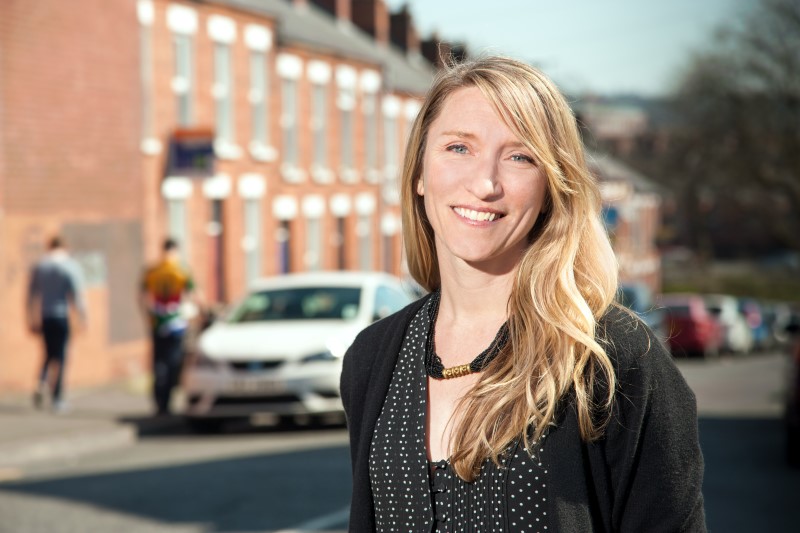Children relate to political, religious and sporting symbols from age five
Children begin to identify with religious and political symbols from as early as the age of five, according to research by Queen’s University Belfast.

In an international study of children from Kosovo, Macedonia and Northern Ireland, the Queen’s researchers found the same pattern - as children get older, they begin to form a preference for certain symbols. Yet, children also shared resources with others across group lines, which the researchers say is a positive sign and suggestive of future peacebuilding.
Dr Laura K. Taylor, Honorary Senior Lecturer in the School of Psychology at Queen’s University Belfast and an Assistant Professor in the School of Psychology at University College Dublin, led the project. It included over 700 children attending schools divided by ethnicity and religion.
The research team asked children directly about their perspectives on peace. The children drew pictures and explained their thoughts.
The research found that during their primary school years, children develop a stronger preference for symbols suich as flags, signs, or sporting emblems.
It also showed that the children who had a preference for symbols from their own group, shared less with a pupil from a ‘conflict rival’ background.
The findings have been published in Developmental Psychology and highlight the implications for long-term peace building within society.
Dr Taylor comments:
“Understanding when children begin to relate to symbols has implications for conflict and its resolution.
“Our research shows that children begin to identify with symbols as early as the age of five but that as they get older – towards the age of 11 – they express higher ingroup symbol preference. Interestingly, this is the case internationally.
“Across Northern Ireland, Kosovo, and Macedonia, it is important to note that even though children preferred ingroups symbols, they were still sharing across group lines. This outgroup sharing can be a seed of peace.”
Dr Taylor adds:
“Despite peace agreements in all three settings, the research highlights that tensions remain and children are socialised in the history of intergroup conflict.
“It is vitally important that we understand how ingroup preferences develop in these early school years. The research suggests that primary school may be a sensitive period and potentially a good time to work on prosocial behaviour – behaviour that intends to benefit others – one way of addressing this could be through empathy interventions or promoting inclusive, overarching identities.”
The project included experts from University College Dublin, Rochester Institute of Technology, Kosovo, and the American University College Skopje, Republic of North Macedonia.
